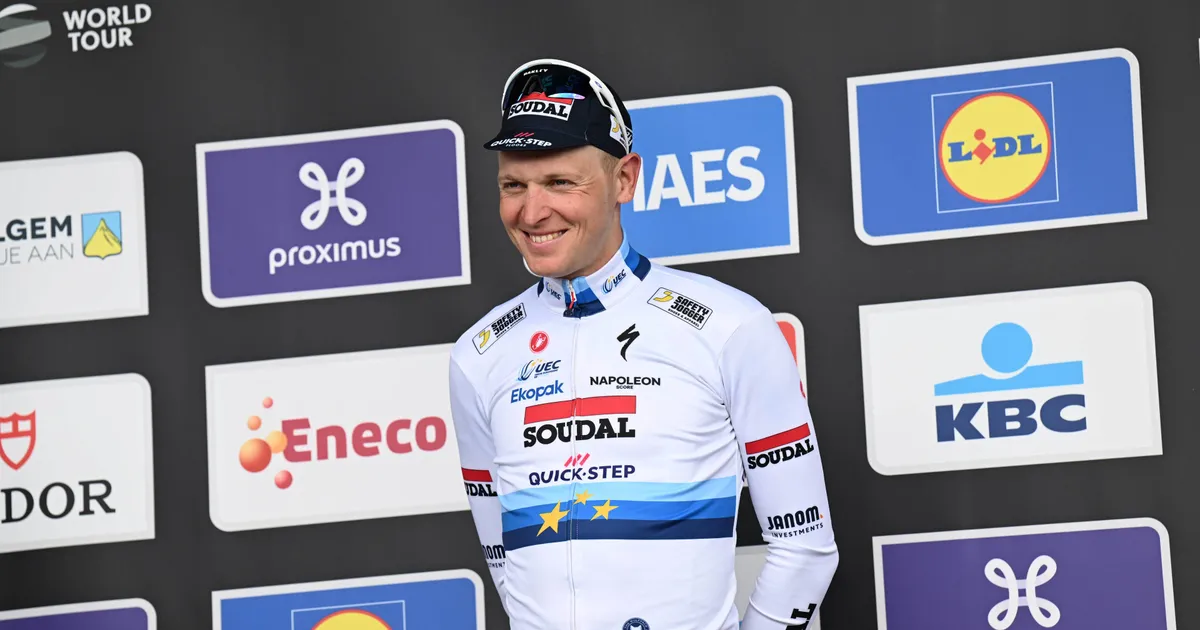Tim Merlier may have claimed his 16th win of the 2025 season on Wednesday, but the Belgian sprinter was in no mood to celebrate uncritically after a tense and chaotic finale to stage 1 of the Tour of Holland. The Soudal – Quick-Step rider outpaced Olav Kooij by the narrowest of margins in Dordrecht, but described the day as “particularly dangerous”, voicing concern over a route that saw nerves and tension dominate the bunch.
“To be honest, it was a particularly dangerous stage with a lot of obstacles,” Merlier said post-stage. “It created a lot of nervousness in the peloton, so I’m not only happy with the win, but also that I came through in one piece.”
Nervous roads, tired legs
A four-man breakaway animated the opening half of the day — three Dutch riders buoyed by home soil alongside Spaniard Javier Serrano (Team Polti–VisitMalta) — but their slender advantage never truly threatened. By the 30km mark, they dangled just 40 seconds up the road, with the bunch controlled in part by Dutch star Fabio Jakobsen, whose presence at the front effectively ruled him out of the sprint to come.
Attacks flickered briefly after the break was caught with 22km to go, but the Red Bull intermediate sprint at 14km marked the final moment of action before the sprinters’ teams took full control.
From there, it was all about positioning — and nerve. Kooij opened up the sprint early in front of a supportive home crowd, but Merlier, despite not being at peak condition, timed his run to perfection. “I was riding on the limit the whole time,” he admitted. “I think I’m a bit out of form at the moment. Today’s sprint really took everything out of me — I was completely done. But a win is a win. I think I won more with timing than with my legs.”
A milestone win, but safety concerns linger
Indeed, the finish line photo told the story: Merlier surging just clear of Kooij, with Tobias Lund Andresen rounding out the podium. While the win marked Soudal – Quick-Step’s 50th of the season — a statistic Merlier was quick to highlight — it came at a cost. “To be honest, it was a particularly dangerous stage, with a lot of obstacles along the way. That created a lot of tension in the peloton, so I’m not just pleased with the win — I’m also relieved to have made it through in one piece.”
It’s rare for a rider — especially a stage winner — to call out course design so candidly, but Merlier’s words reflect a growing chorus in the peloton around rider safety. In a sport where centimetres and seconds decide outcomes, unpredictability in the terrain is an unwelcome variable.

